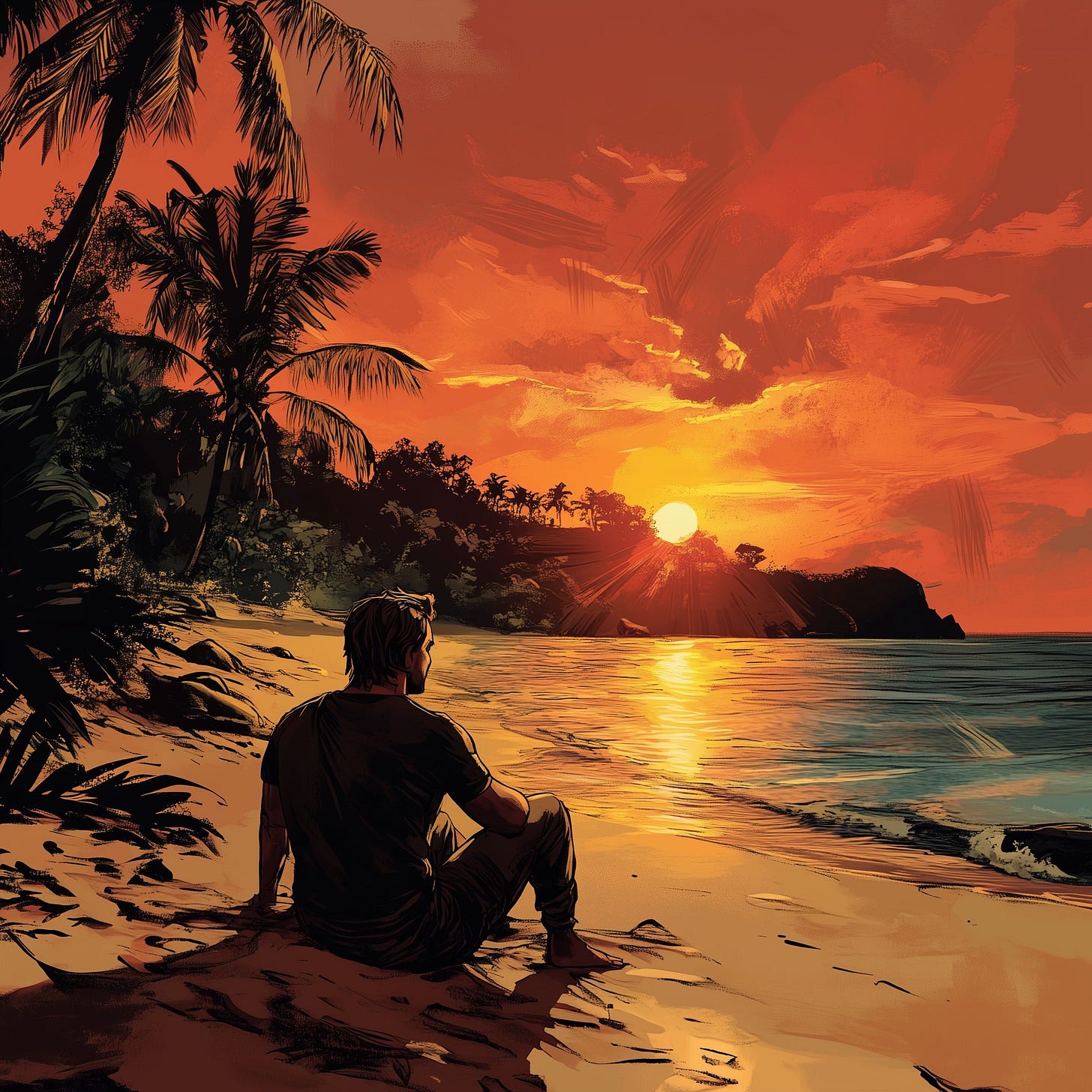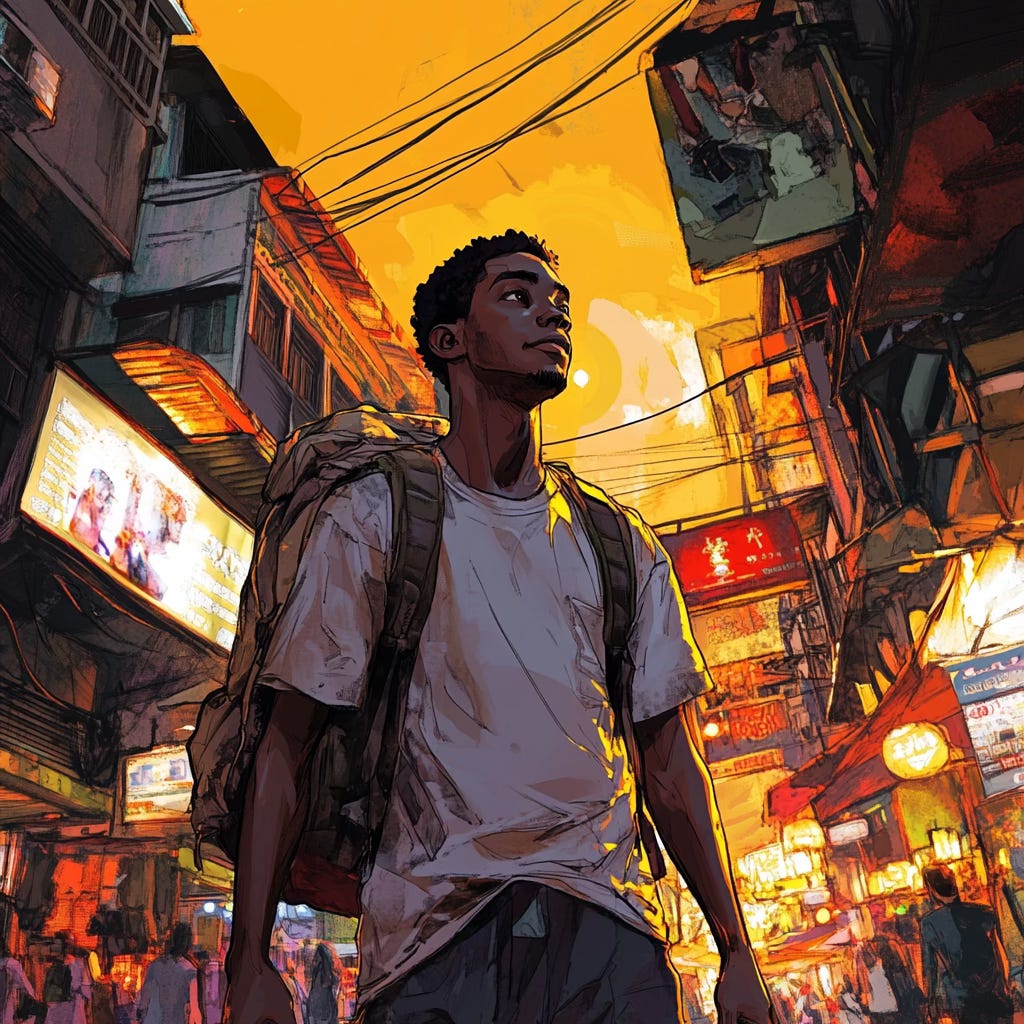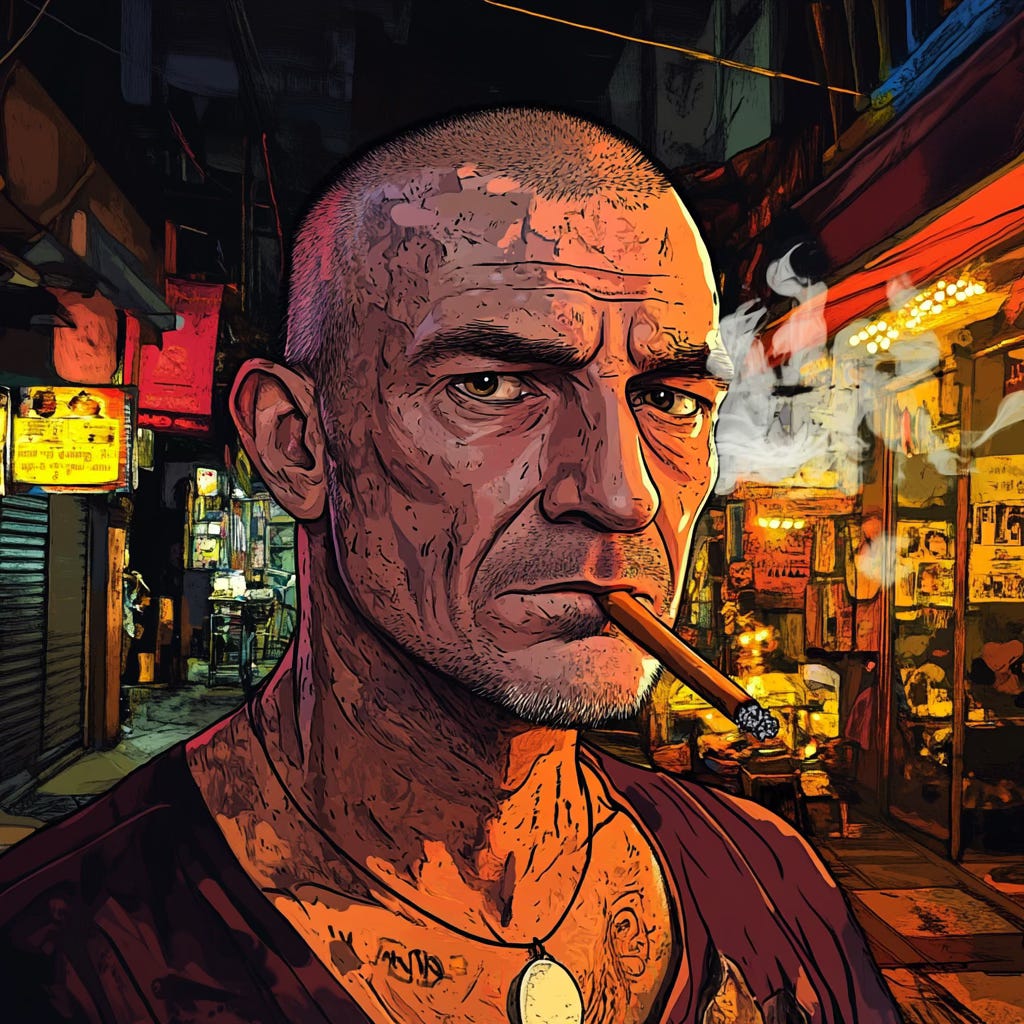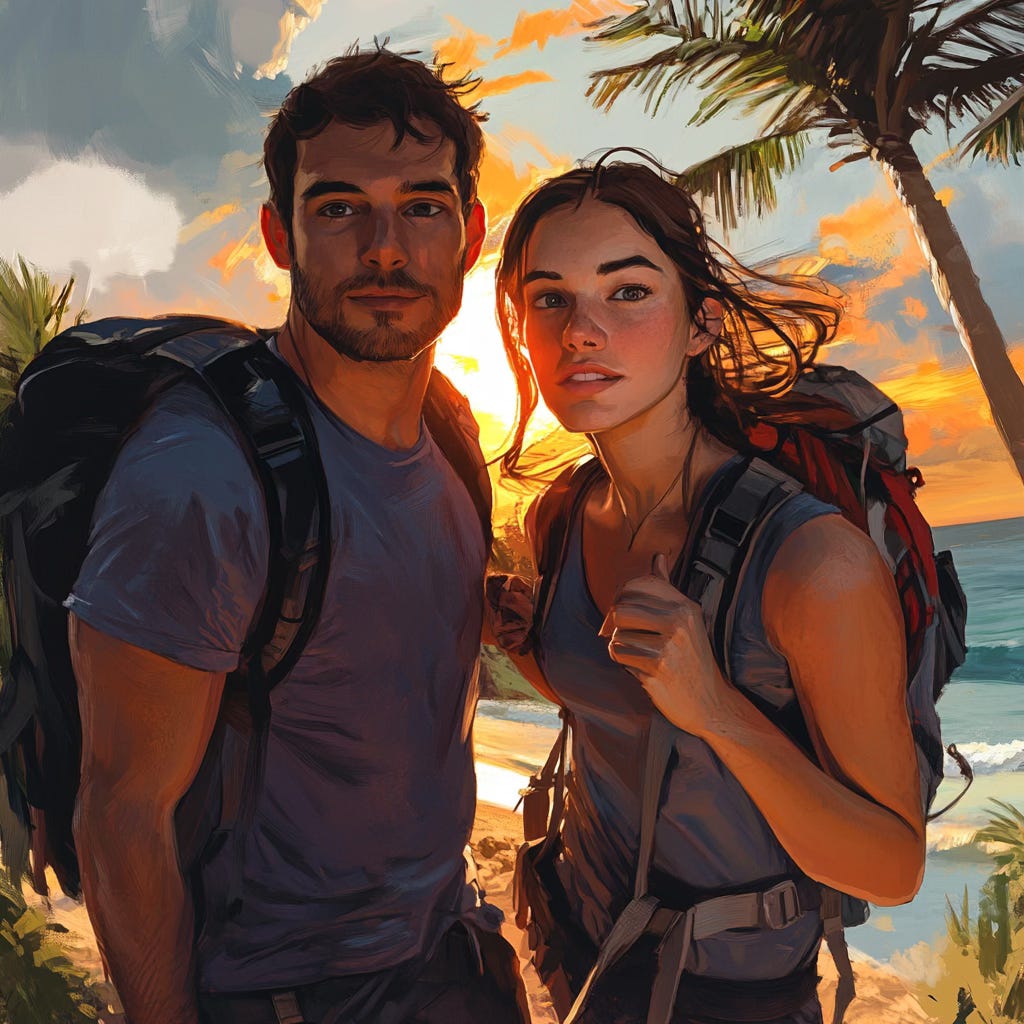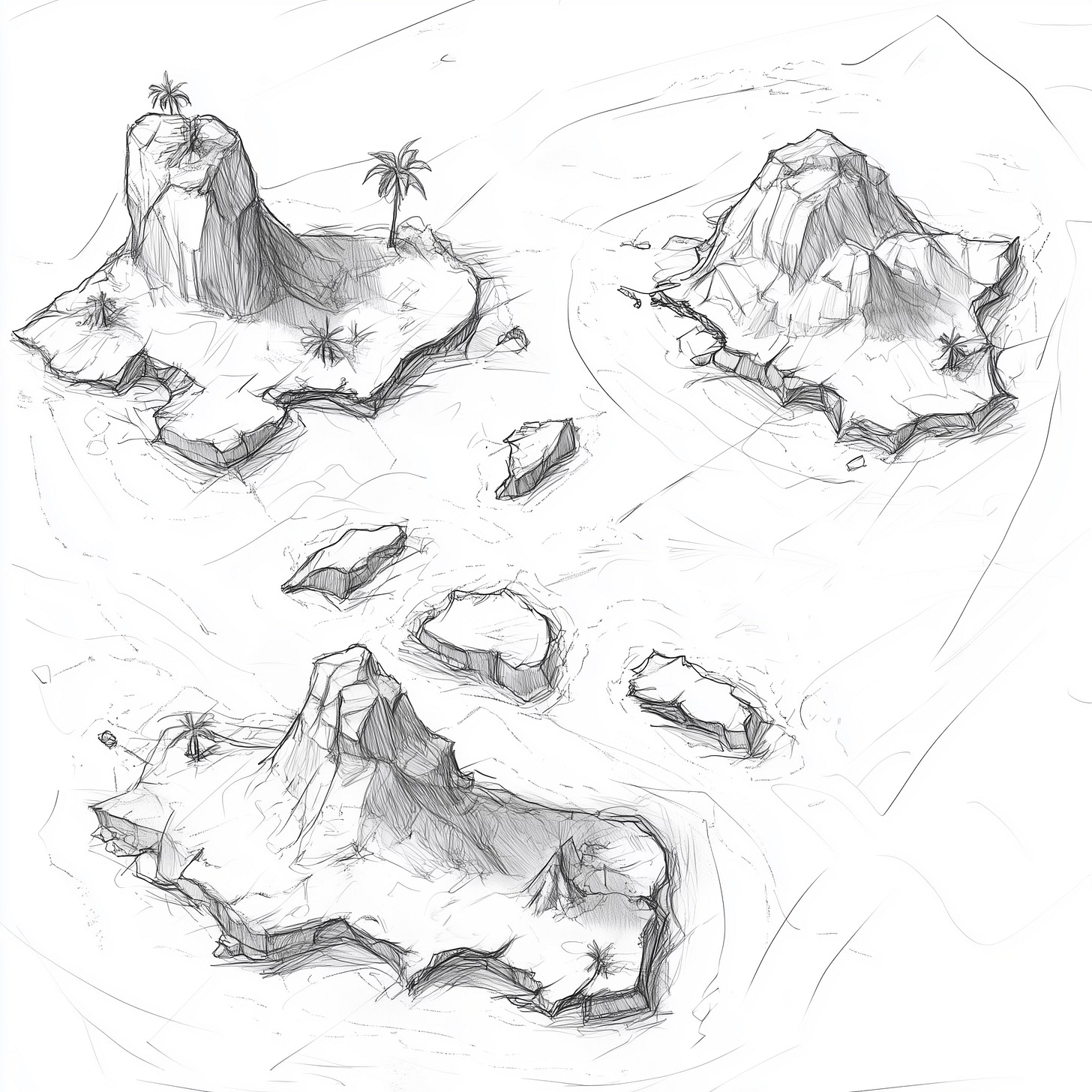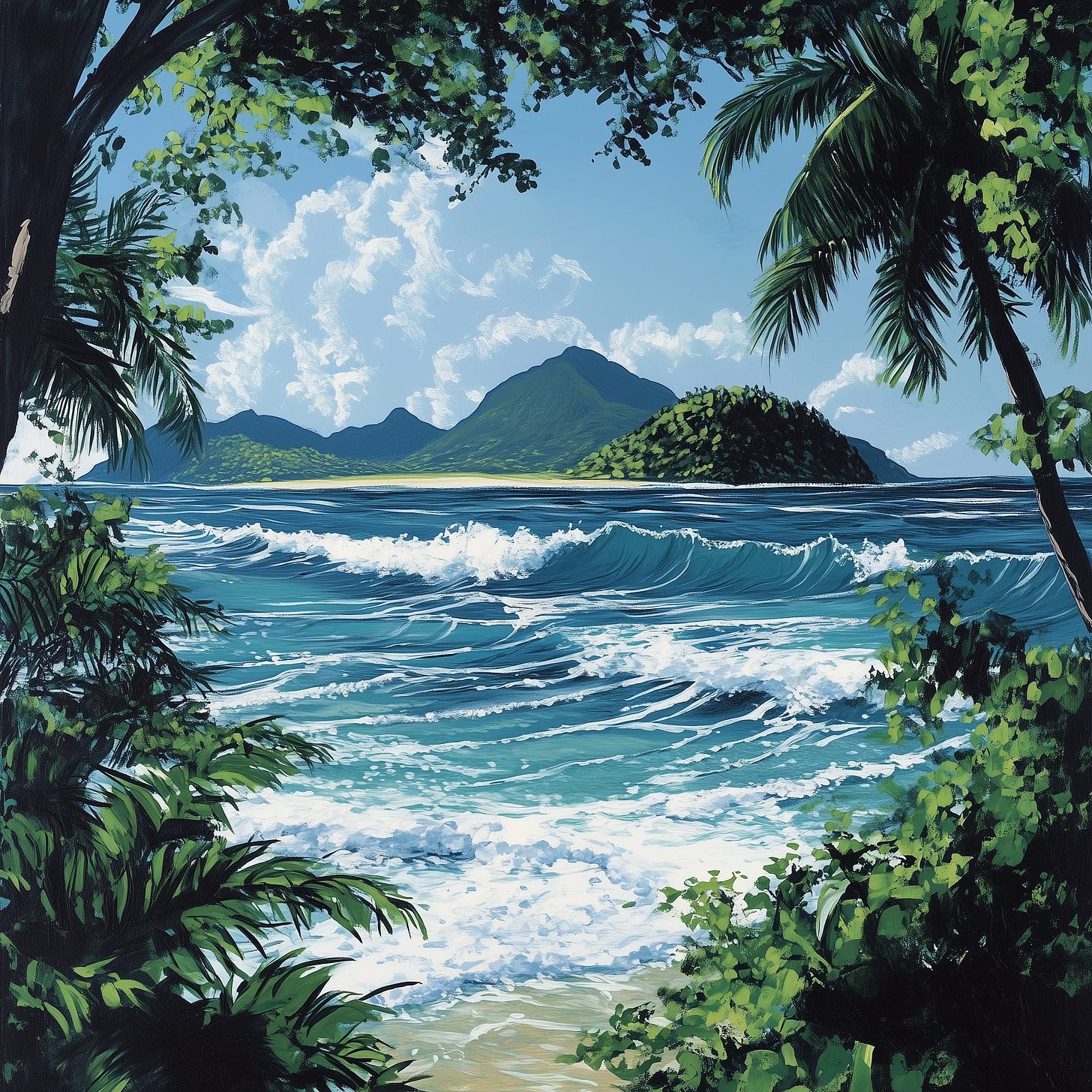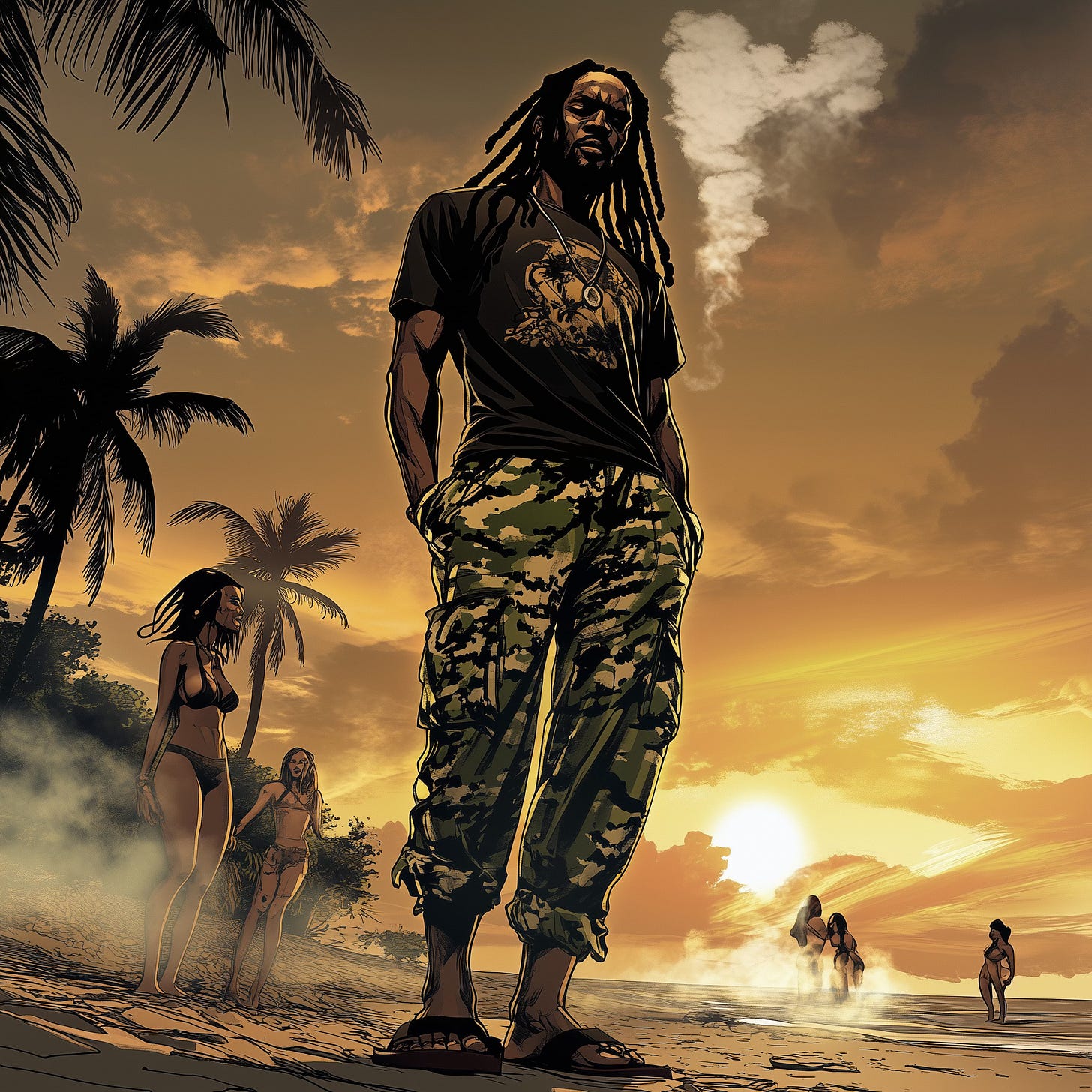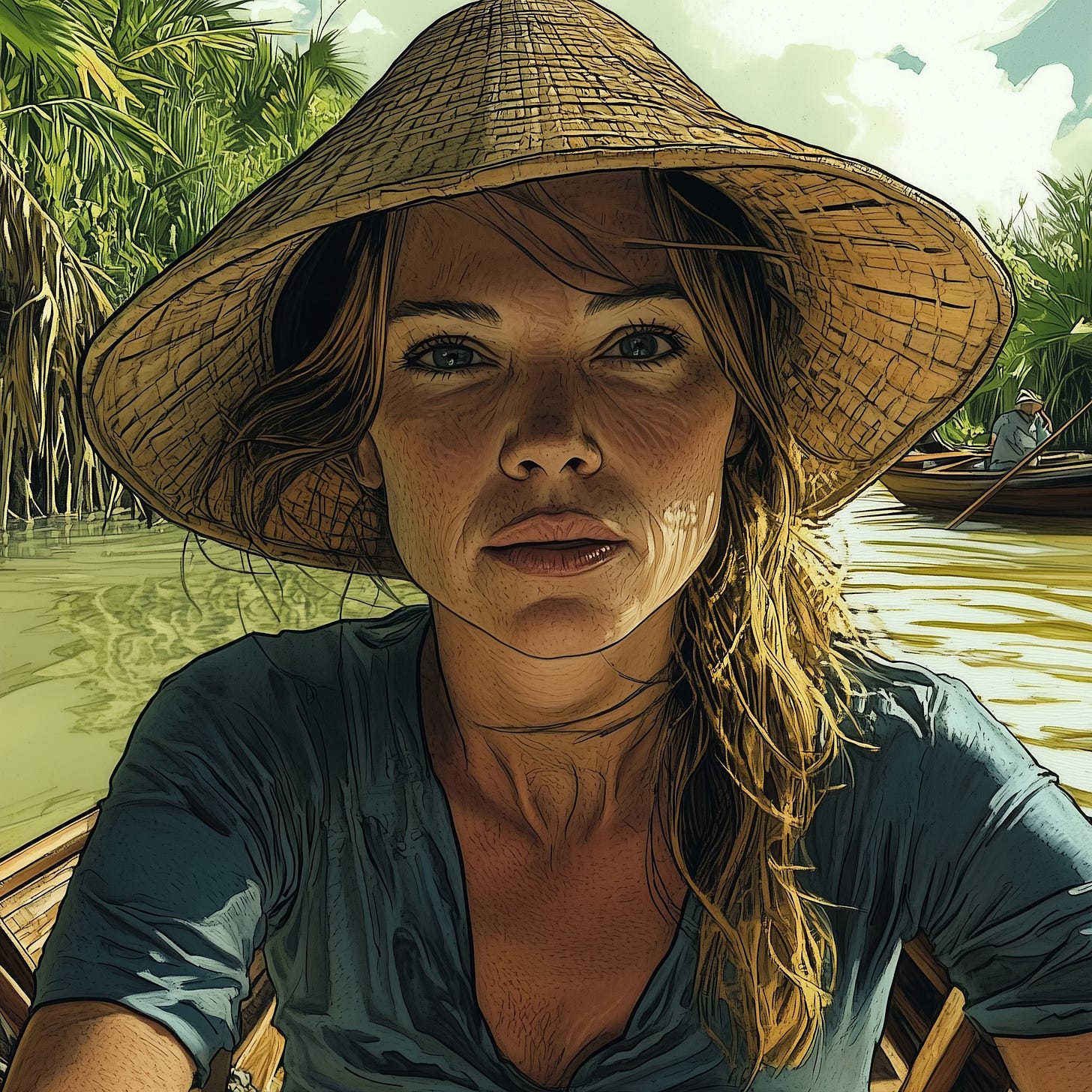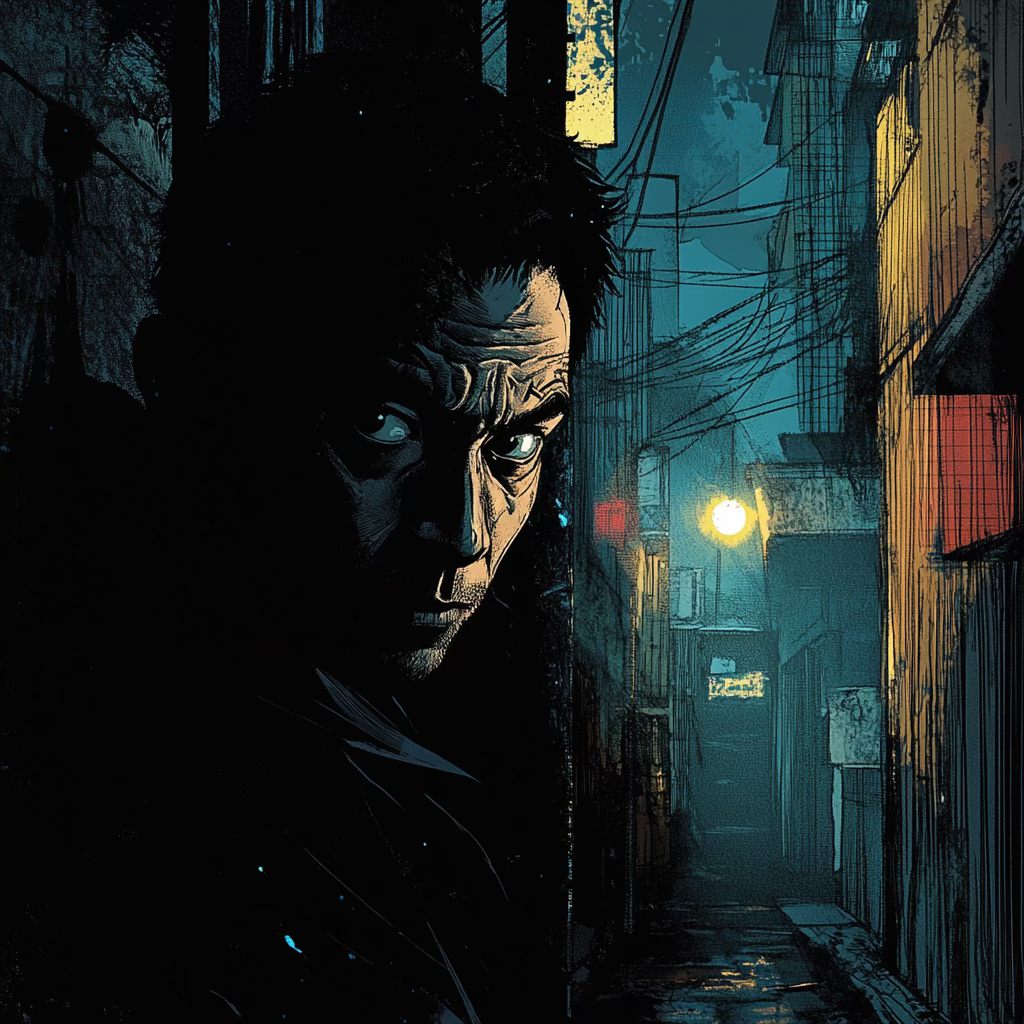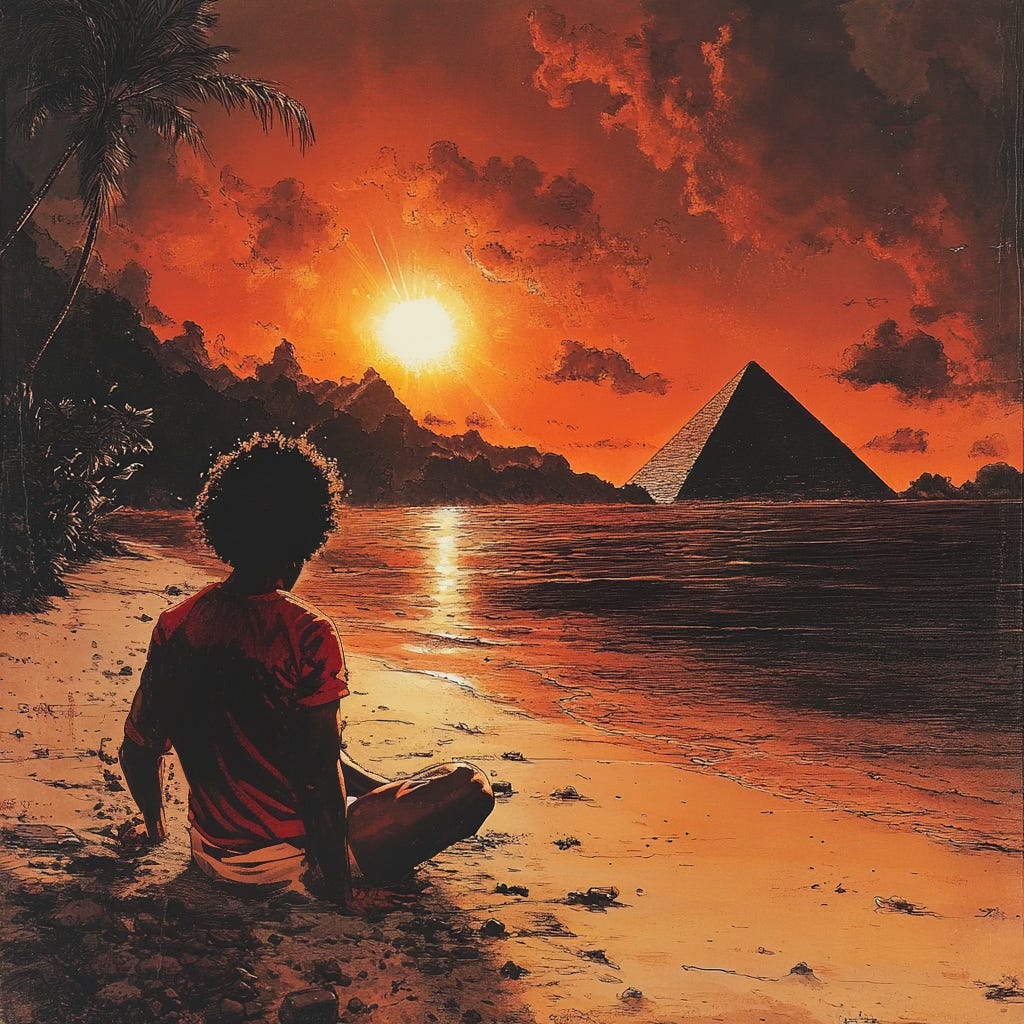Taking Notes from THE BEACH
The famous book, turned film left notes for future travelers, however, many of us failed to listen
The first time I heard about the film THE BEACH, my homeboy said it was lame. I wasn’t a fan of DiCaprio, and I was like, “Yeah, son, whatever…”
Months later, while hustling and making some of that long I.T. money, I made friends with a group of Asian guys at a startup in downtown Manhattan. We got cool and after some time, they invited me out with them to grab brews.
Months later, they became homies and invited me to their beach.
Thailand was their kingdom and when they visited, they were young princes. Beyond the stories of beautiful women, and the fantasy land where anything goes, they asked me to join them because they could sense that I needed a change.
I had left the startup the summer before the towers fell on 9/11 and lost contact with several of my Asian homies, but I remembered the invitation.
Incidentally, around this time, I stumbled upon the Thailand-based film THE BEACH while scrolling through movies on cable tv. After the first viewing, my travel nose was wide open, and I even became a DiCaprio fan. More than my Asian homies, the film inspired my early interest in taking flight.
Alex Garland’s book THE BEACH was published in 1996, and it became an underground hit among travelers, an incognito invitation to Southeast Asia. I’m in the crowd that thinks the movie was better than the book. Perhaps it’s because I saw the film first, but whatever.
Regardless, while millions were first logging onto the internet for the first time, a small number of people were headed to Southeast Asia.
I won’t spoil the film if you haven’t seen it, but the story is about an American backpacker name Richard (played by Dicaprio) who learns about a secret paradisiacal beach and enters a subculture of travelers, discovering life beyond tourism.
There are several messages conveyed in the film that have stayed with me, and honestly, it came across as an early “HOW TO” guide for travel.
I listened to the messages imparted in the film, but it seems as though an entire generation of travelers did not.
Breaking Free - Tourism is ‘aight,’ but when you take flight and you’re on the other side of the planet, you’re truly free. You’re away from your family, your career, and for a while, it’s just you, your body, mind, and spirit, and brothers, that’s the most beautifullest thing in this world.
Regarding your journey, you can’t figure everything out from home. You can’t plan for the unexpected. You will be afraid, you’ll make mistakes, and you’ll establish friendships, but that is the beauty of traveling, which was conveyed in the film.
Guardians at the Threshold - During the first act of the film, Richard (the protagonist) meets a beleaguered traveler named Daffy, who provides him with a map to the secret beach.
The Daffy character represents the seasoned travelers you’ll encounter after you have ventured beyond tourism. They have been out in the world, away from their home countries for years.
They will befriend and guide you — if they value your journey.
They tend to stay clear of travel newbies and people who haven’t cut their teeth abroad. Much like the Daffy character, they might be dealing with personal issues, which are often managed through drinking, drugs or relationships with women.
Don’t judge them; just learn what you can and let them be.
Friendships on The Road — During the film, Richard asks some acquaintances to accompany him to the mysterious beach. While traveling, you should get in the habit of making friends with different types of people.
On the other side of the planet, your network is invaluable.
Over the years, during my travels, I have formed friendships with people of different races, ethnicities, and beliefs. Keep yourself open and accept people as they are, because sometimes, friendships can come from the most unlikely sources.
After I got jumped in Siem Reap, it was a so-called redneck who took me out for burgers and beer. When I was homeless in Hong Kong, several Chinese people took me in. Hours after I got beaten with sticks by gang members on Buy Vien street in Saigon, it was a Vietnamese woman, who was healing me with good pussy.
The Journey to the Beach — In the film, the route to the beach was provided by a map. It was a secret invitation. I immediately understood the symbolism. There were travel secrets in the world, beyond tourism, and if you were fortunate enough to start the journey, others would share with you.
Real talk, the travel information you get from social media, Youtube and magazines are the leftovers.
The best travel advice and secrets are conversations on the other side of the planet.
Protect Travel Secrets—Anyone who travels, even for a short trip, wants to deviate from the typical tourist path. We seek out special places and experiences that are authentic in the world, aiming for something memorable.
The film emphasized that it is crucial to protect the secret of the beach because they didn’t want all the disruptive tourists ruining their experience—the Ray Rays, the Pookies, and the Keishas of tourism, who can be found in every race and ethnicity.
In this age of social media, it’s even harder to do so, and people are working harder to safeguard these special locations. If you find a place, enjoy it, and protect it. During my journeys, I’ve discovered a number of locations and passed through towns that I’ll never share with a soul.
Brothas in the Cut — In the film, Richard encounters a wise traveler named Keaty, a brother who has been living on the beach for some time and through dialogue you get a sense that he has been out in the world for several years.
No matter where I go, I’ve found that brothers have been on the move for a while. Quite often, they are very wise and know how to navigate expat social circles.
These experienced brothers know how to get along with almost everyone and can help you navigate difficult situations. They understand racism while traveling and can help you circumvent it.
The Gatekeepers — In the film, a female character named Sal represents many of the gatekeepers you encounter on the road. She borders on being a "Karen," but she is a seasoned traveler who navigated the world when things were still new.
These type of individuals created their own spaces in many countries, and you'll have to work hard to obtain information from them.
Sal was obsessed with keeping the physical location of the beach a secret, and it taught me that many travelers, especially Caucasians, will gatekeep and exclude others from their circles.
Danger — The film highlighted the imminent and lingering risks of death while traveling. In places like the United States or other Western countries, most major cities have somewhat of a stable infrastructure. While violence is always a possibility, you have the support of law enforcement, the right to carry weapons, and self-defense laws that work in your favor. None of that really applies on the other side of the globe.
If you find yourself in a fight in a foreign country, it will be nearly impossible to win a self-defense case unless there is supporting video evidence.
In developing countries, you're on your own and often dependent on fellow travelers for your well-being and, at times, basic survival. Conflicts in these countries often leads to death.
I got jumped in Cambodia and was told I should be grateful to be alive, since foreigners were often killed over minor disputes. During my two years in Southeast Asia, I frequently read news articles about foreigners being found dead for various reasons.
By all means, explore the world, brothers, but always remember to watch your back and your front.
The film may be 25 years old, but it still offers plenty of messages for those willing to venture beyond tourism.
The irony of the movie—and its message about protecting travel secrets from the masses—is that the physical beach used during its filming, Koh Phi Phi, Thailand became overrun by tourists.
Things got so bad that it had to be closed for several years. Everyone and their momma wanted to visit.
What the masses of tourists did not know was that the book, set in Thailand, was actually based on the author’s experiences in El Nido, Philippines. Staying true to his book, Alex Garland maintained one of his greatest travel secrets.
In this age of social media and misguided travel entertainment, I’m extending an invitation.
I hope you brothers catch plenty of flights, heed the words from this genius, and remember to take notes from THE BEACH.
Clarke Illmatical is a writer and director from Queens, New York. He’s lived in Brazil, China, Taiwan, Cambodia, Vietnam, Hong Kong, Tanzania, Mexico and Guatemala.
He’s the author of the book HOMEBOY AND THE PYRAMIDS: A TRAVEL GUIDE FOR THE SO-CALLED BLACK MAN, which will be available in 2025.


